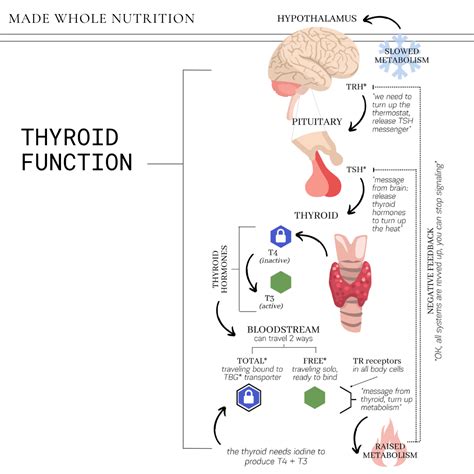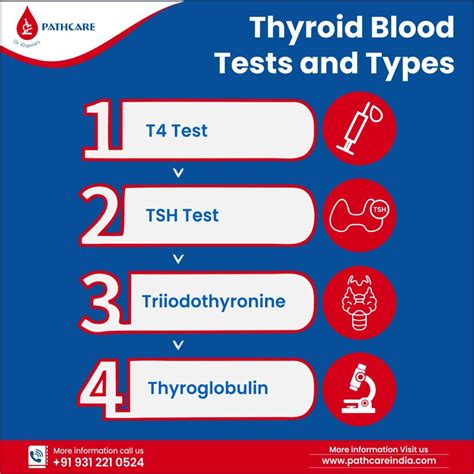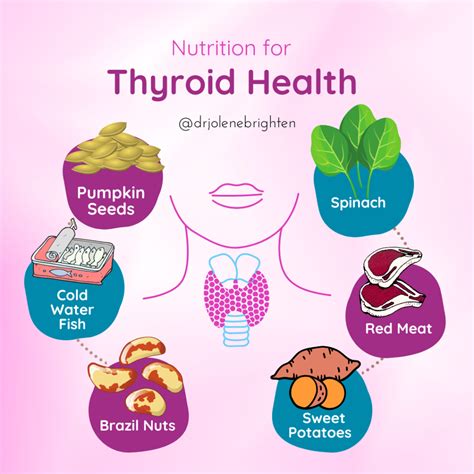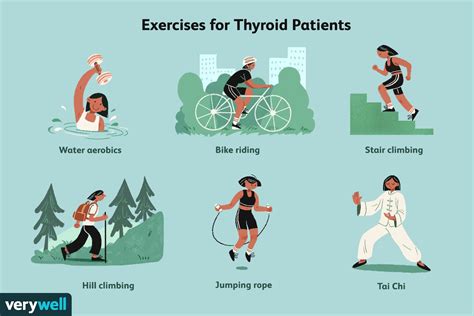Intro
Discover how to test your thyroid function with comprehensive guides on thyroid hormone levels, hypothyroidism symptoms, and hyperthyroidism treatment, ensuring optimal thyroid health and wellness.
The thyroid gland is a small, butterfly-shaped gland located in the neck, just below the Adam's apple. Despite its small size, the thyroid gland plays a crucial role in regulating various bodily functions, including metabolism, growth, and development. Thyroid function is essential for maintaining overall health, and any abnormalities in thyroid function can have significant consequences. In this article, we will explore the importance of thyroid function, the symptoms of thyroid dysfunction, and the various tests available to assess thyroid function.
Thyroid function is often taken for granted, but it is essential for maintaining a healthy metabolism, energy levels, and overall well-being. The thyroid gland produces two primary hormones, triiodothyronine (T3) and thyroxine (T4), which regulate various bodily functions, including heart rate, blood pressure, and body temperature. Any imbalance in thyroid hormone production can lead to a range of symptoms, including fatigue, weight gain or loss, mood changes, and hair loss. Therefore, it is crucial to test thyroid function regularly to detect any potential abnormalities early on.
Thyroid dysfunction can manifest in various forms, including hypothyroidism (underactive thyroid), hyperthyroidism (overactive thyroid), and thyroiditis (inflammation of the thyroid gland). Hypothyroidism is the most common form of thyroid dysfunction, affecting approximately 4.6% of the US population. The symptoms of hypothyroidism can be subtle and may develop gradually, making it challenging to diagnose. On the other hand, hyperthyroidism is less common, affecting approximately 1.2% of the US population, but its symptoms can be more pronounced and debilitating. Thyroiditis is a rare condition that can cause thyroid dysfunction, often resulting in hyperthyroidism or hypothyroidism.
Understanding Thyroid Function Tests

Thyroid function tests are essential for diagnosing and monitoring thyroid dysfunction. The most common thyroid function tests include the thyroid-stimulating hormone (TSH) test, free thyroxine (FT4) test, and free triiodothyronine (FT3) test. The TSH test measures the level of TSH in the blood, which helps regulate thyroid hormone production. The FT4 and FT3 tests measure the levels of T4 and T3 in the blood, respectively. These tests can help diagnose hypothyroidism, hyperthyroidism, and other thyroid-related disorders.
Thyroid-Stimulating Hormone (TSH) Test
The TSH test is the most commonly used test to assess thyroid function. TSH is produced by the pituitary gland and regulates the production of thyroid hormones. The TSH test measures the level of TSH in the blood, which can indicate whether the thyroid gland is producing too much or too little thyroid hormone. A high TSH level may indicate hypothyroidism, while a low TSH level may indicate hyperthyroidism.Interpreting Thyroid Function Test Results

Interpreting thyroid function test results can be complex and requires a thorough understanding of thyroid physiology. The test results are typically evaluated in conjunction with clinical symptoms and medical history. The reference ranges for thyroid function tests may vary depending on the laboratory and the individual's age, sex, and other factors. A healthcare provider can help interpret the test results and determine the best course of action.
Reference Ranges for Thyroid Function Tests
The reference ranges for thyroid function tests are as follows: * TSH: 0.4-4.5 mU/L * FT4: 0.8-2.0 ng/dL * FT3: 2.3-4.2 pg/mLPlease note that these reference ranges may vary depending on the laboratory and the individual's specific circumstances.
Thyroid Function and Overall Health

Thyroid function is closely linked to overall health, and any abnormalities in thyroid function can have significant consequences. Thyroid dysfunction can increase the risk of cardiovascular disease, osteoporosis, and other health problems. Therefore, it is essential to maintain optimal thyroid function through a combination of a healthy diet, regular exercise, and stress management.
Diet and Thyroid Function
A healthy diet rich in fruits, vegetables, whole grains, and lean protein can help support thyroid function. Certain nutrients, such as iodine, selenium, and zinc, are essential for thyroid hormone production and function. Foods that are rich in these nutrients include: * Iodine: seaweed, dairy products, and fortified foods * Selenium: Brazil nuts, fish, and turkey * Zinc: oysters, beef, and chickenThyroid Function and Mental Health

Thyroid function is closely linked to mental health, and any abnormalities in thyroid function can have significant consequences. Thyroid dysfunction can increase the risk of depression, anxiety, and other mental health problems. Therefore, it is essential to maintain optimal thyroid function through a combination of a healthy diet, regular exercise, and stress management.
Managing Stress and Thyroid Function
Stress can have a significant impact on thyroid function, and chronic stress can increase the risk of thyroid dysfunction. Engaging in stress-reducing activities, such as meditation, yoga, and deep breathing exercises, can help manage stress and support thyroid function.Thyroid Function and Exercise

Regular exercise is essential for maintaining optimal thyroid function. Exercise can help reduce stress, improve mood, and support overall health. Certain types of exercise, such as yoga and Pilates, can also help improve thyroid function by reducing stress and promoting relaxation.
Exercise and Thyroid Hormone Production
Exercise can have a significant impact on thyroid hormone production, and regular exercise can help support thyroid function. Exercise can help increase the production of T3 and T4, which can help improve mood, energy levels, and overall health.Thyroid Function and Sleep

Sleep is essential for maintaining optimal thyroid function, and chronic sleep deprivation can increase the risk of thyroid dysfunction. Getting adequate sleep can help support thyroid function, improve mood, and reduce stress.
Sleep and Thyroid Hormone Production
Sleep can have a significant impact on thyroid hormone production, and chronic sleep deprivation can disrupt thyroid function. Getting adequate sleep can help support thyroid function, improve mood, and reduce stress.Thyroid Function and Nutrition

A healthy diet rich in fruits, vegetables, whole grains, and lean protein can help support thyroid function. Certain nutrients, such as iodine, selenium, and zinc, are essential for thyroid hormone production and function.
Nutrition and Thyroid Hormone Production
Nutrition can have a significant impact on thyroid hormone production, and a healthy diet can help support thyroid function. Certain foods, such as seaweed, dairy products, and fortified foods, are rich in iodine, which is essential for thyroid hormone production.What is the most common thyroid function test?
+The most common thyroid function test is the thyroid-stimulating hormone (TSH) test.
What are the symptoms of hypothyroidism?
+The symptoms of hypothyroidism include fatigue, weight gain, dry skin, and hair loss.
How can I support thyroid function through diet?
+A healthy diet rich in fruits, vegetables, whole grains, and lean protein can help support thyroid function. Certain nutrients, such as iodine, selenium, and zinc, are essential for thyroid hormone production and function.
Can exercise improve thyroid function?
+Yes, regular exercise can help improve thyroid function by reducing stress, improving mood, and supporting overall health.
How can I get tested for thyroid dysfunction?
+You can get tested for thyroid dysfunction by consulting with a healthcare provider, who can order thyroid function tests and interpret the results.
In conclusion, thyroid function is essential for maintaining overall health, and any abnormalities in thyroid function can have significant consequences. By understanding the importance of thyroid function, the symptoms of thyroid dysfunction, and the various tests available to assess thyroid function, individuals can take proactive steps to support thyroid health. Maintaining a healthy diet, exercising regularly, managing stress, and getting adequate sleep can all help support thyroid function. If you suspect that you may have thyroid dysfunction, consult with a healthcare provider, who can order thyroid function tests and provide guidance on the best course of action. By prioritizing thyroid health, individuals can improve their overall well-being and reduce the risk of chronic diseases. We encourage readers to share their experiences with thyroid function tests and how they have managed their thyroid health.
